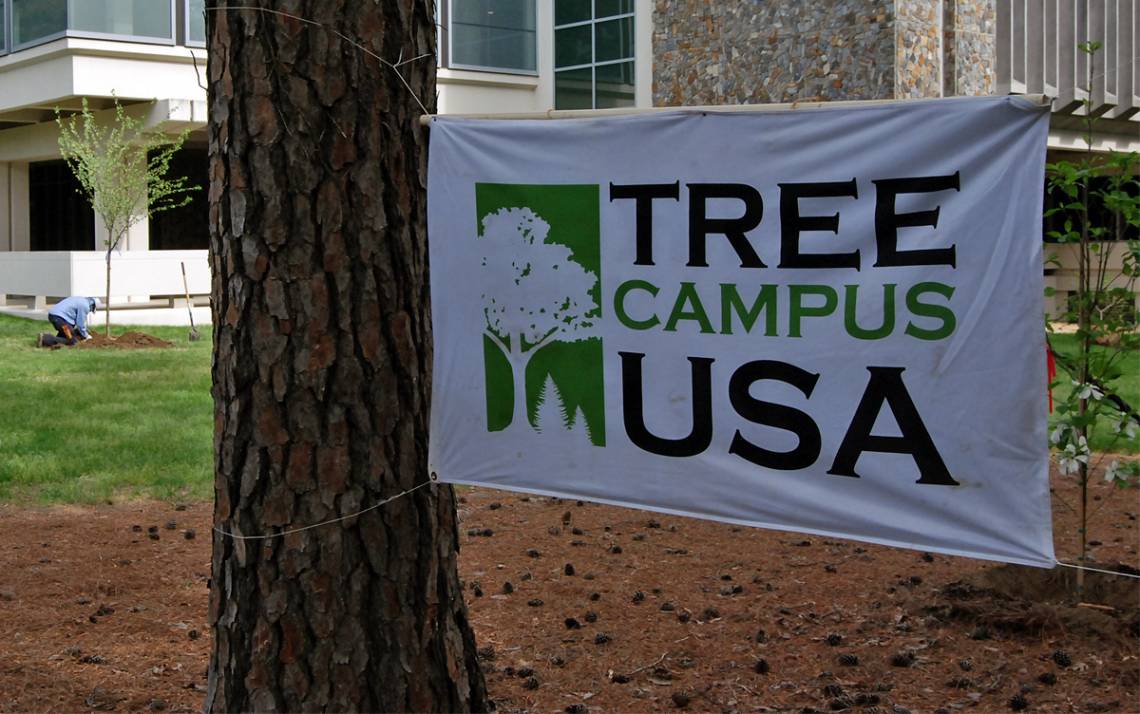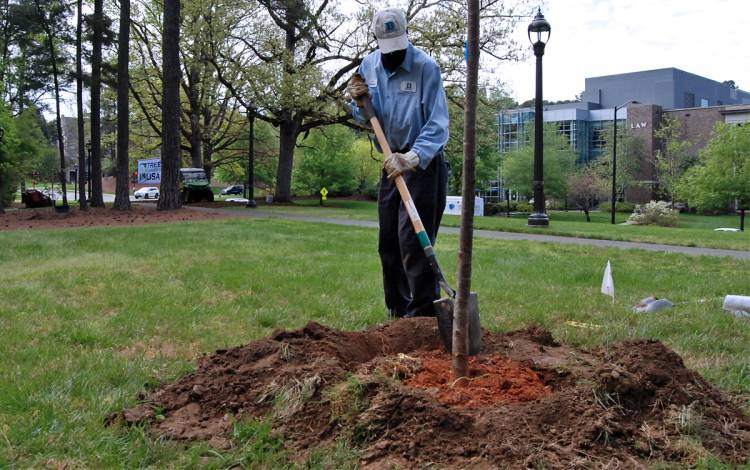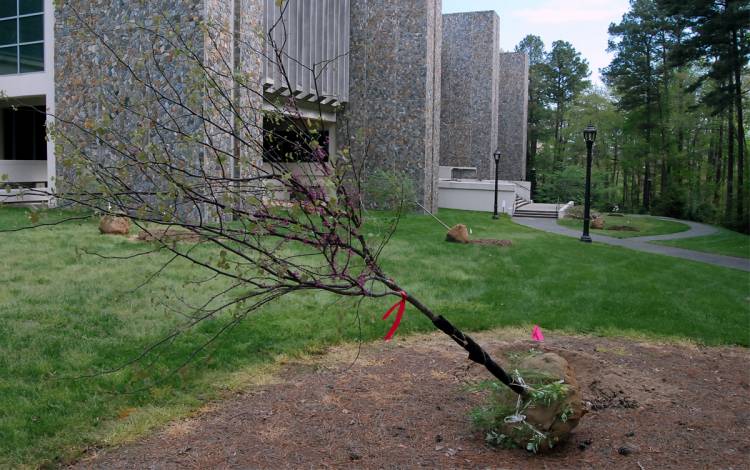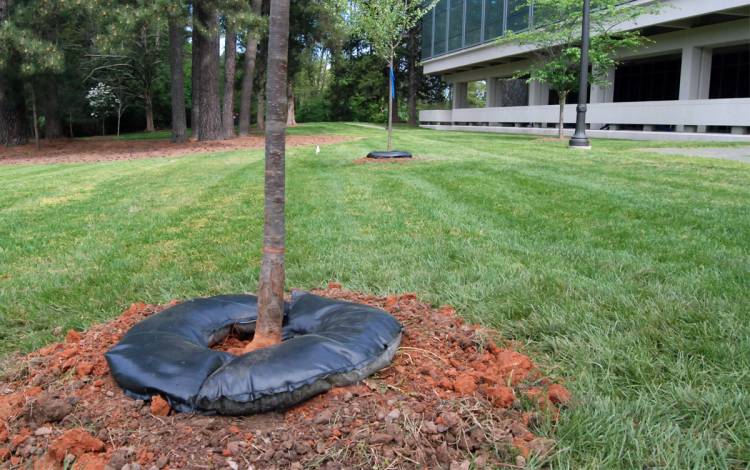Duke Earns Tree Campus Honor for 13th Straight Year
By embracing new ideas, Duke shows commitment to its campus canopy

On a recent sunny Wednesday morning, members of Duke Facilities Management’s Landscape Services team dug holes in the grassy patches around Gross Hall and carefully filled them with young Yoshino cherry, eastern redbud and white dogwood trees.
 Placed in an area without an irrigation system, and where similar trees were once unable to thrive in the past due to a lack of moisture, these new trees will have a better chance due to Duke Facilities Management’s willingness to embrace new ideas.
Placed in an area without an irrigation system, and where similar trees were once unable to thrive in the past due to a lack of moisture, these new trees will have a better chance due to Duke Facilities Management’s willingness to embrace new ideas.
“Somebody’s always coming up with something new or improved,” said Duke Landscape Services’ Superintendent of Tree Management Roger Conner. “Staying up to date on what’s out there to help take care of the trees we have is very important.”
Referred to as a “University in a Forest,” Duke has long demonstrated its commitment to the trees on its campus. That commitment to planting and caring for trees helped Duke earn the Tree Campus Higher Education Award for the 13th consecutive year earlier this spring. It’s one of 16 institutions in North Carolina to earn the award and one of roughly 150 nationwide.
 Started in 2008, Tree Campus Higher Education designation is awarded to colleges and universities based on a multi-part criteria that includes crafting responsible tree maintenance plans, engaging students and the wider community in decisions relating to the trees on campus, and creating educational opportunities and community forestry efforts
Started in 2008, Tree Campus Higher Education designation is awarded to colleges and universities based on a multi-part criteria that includes crafting responsible tree maintenance plans, engaging students and the wider community in decisions relating to the trees on campus, and creating educational opportunities and community forestry efforts
Duke has a Campus Tree Advisory committee comprised of students, faculty, facilities management staff members and community members, and Facilities Management Department also held a tree planting event in April to showcase campus forestry efforts.
This year’s event included the planting of the 12 new trees around Gross Hall. Once they grow in, the trees will provide a pastel-colored show when they bloom each spring. And around the base of many of them sit soft, dark rings that will ensure the trees can do that job for years to come, a reflection of how Duke stays ahead of the curve in caring for trees.
 Called TreeDiapers, the rings are filled with moisture-capturing gel – much like what’s inside most disposable diapers. When the rings get wet, they fill with water and slowly release it, allowing the roots of the tree to always have the moisture they need.
Called TreeDiapers, the rings are filled with moisture-capturing gel – much like what’s inside most disposable diapers. When the rings get wet, they fill with water and slowly release it, allowing the roots of the tree to always have the moisture they need.
Conner said Duke started using the products last year. Of the roughly 80 trees that had TreeDiapers, just two had problems.
“Tree Campus Higher Education is holistic,” Conner said. “It’s always going to be about adding trees to the environment. But there’s also an educational piece to it. The idea is to teach people what to do and what not to do, whether that’s proper pruning techniques, proper planting techniques, the different types of plants you can put in and the different ways to take care of them.”
Send story ideas, shout-outs and photographs to Working@Duke through our story idea form or write working@duke.edu.